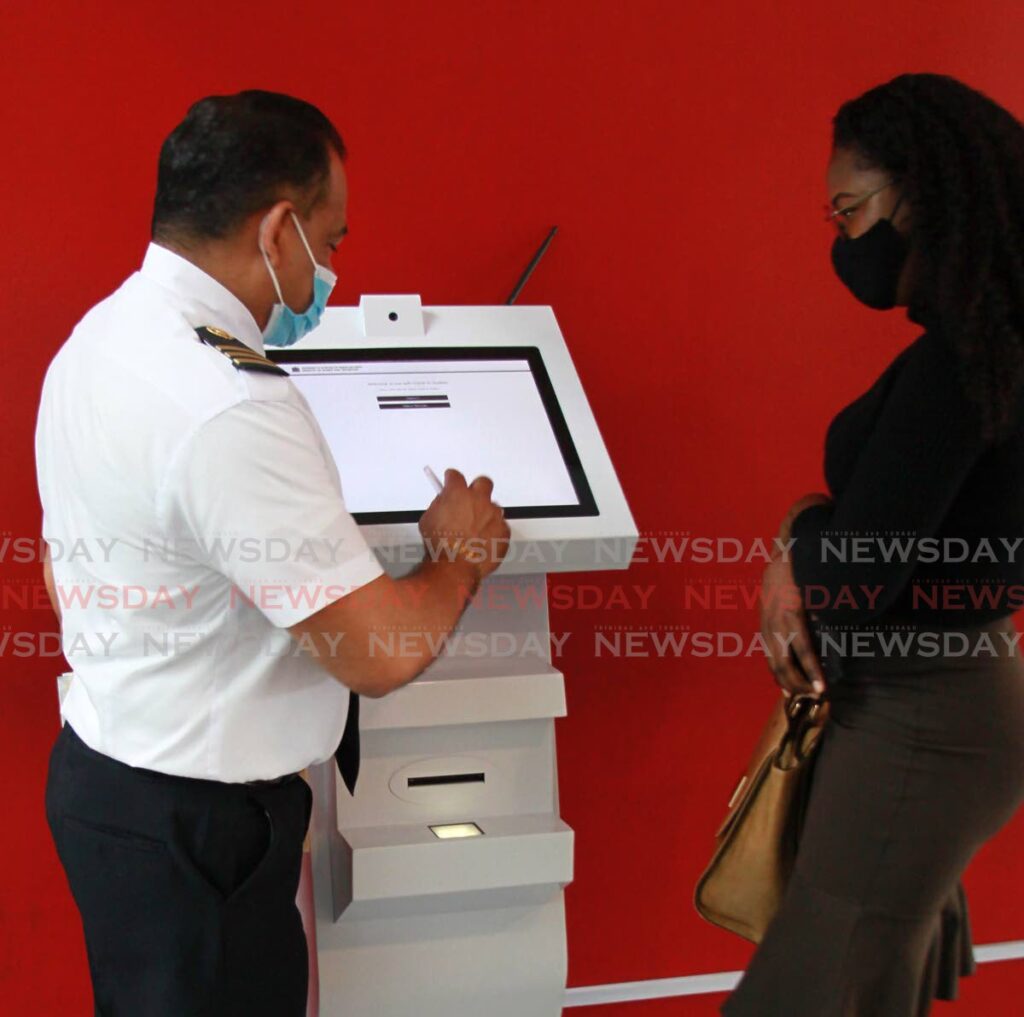Riding the wave of digitalisation

Have you moved into the digital age yet? Not even the age of the future, but the age of now?
Whether you were aware of it or not, whether you want it or not, Trinidad and Tobago is already there. We even have a Ministry of Digital Transformation, set up in July by the Prime Minister, with a new minister, Hassel Bacchus and a budgetary allocation of over $281 million to start him off for fiscal 2022.
Do you remember Alvin Toffler’s book called The Third Wave? It was almost required reading in the 1980s and prepared its readers for the world that was coming, the waves of change we are now experiencing, in other words, as well as for “the third wave,” the one you see at Maracas beach going in the opposite direction as the new ones are coming in.
There is always a pushback to whatever new change faces humanity such as the one we are going through now. There is no equity in the effect it is having.
Government has signalled that it was surfing the first wave when the Prime Minister announced years ago his government’s intention to digitalise the country. Perhaps he had read The Third Wave.
In case you haven’t, you can get it on Amazon, where the blurb says: “The Third Wave makes startling sense of the violent changes now battering our world. Its sweeping synthesis casts fresh light on our new forms of marriage and family, on today's dramatic changes in business and economics. It explains the role of cults, the new definitions of work, play, love, and success. It points toward new forms of twenty-first-century democracy.”
It certainly does do all of that and explains a lot that we see around us. Make note of the phrase “violent changes now battering our world.” Violent by environment, violent by health, violent socio-economically, violent by crime and warfare, violent psychologically, and often emotionally. Significantly, “changes in business, and economics” (think bitcoins, drone deliveries, electric cars), “new definitions of work and success” (think Zoom, working online from home, virtual meetings, work-life balancing over pyramid climbing).
Written 40 years ago, it was not, of course, built on an analysis of socio-economic changes in the Caribbean. It could not grasp the way world changes would hit small island states like ours. But it came phenomenally close.
Perhaps no one other than Mia Mottley could have done that, but to narrow in on just one of those changes invoked by our government as a second wave attempt, and from government to business and from business to commerce and from commerce to any stakeholder (employee, bank, customer, manager, supplier, promoter, stock exchange etc) digitalisation is the focus.
Just as we have to accept that different forms of covid are going to be around as long as we are (the Spanish flu, which lasted from 1918-1919, killing 50 million people, was caused by the same virus), digitalisation in one form or another will be part of our lives, expanding and evolving. Get used to it.

Mr Bacchus put it this way: “A digital economy focuses on digitalisation and private-sector agencies in TT, other economic opportunities, new and emerging technology…Digital government, of course will address the key areas of infrastructure operations with very specific focus on service.”
Mr Bacchus seems to be a nice man with Toffler-like visions for the future. I wish him well.
The vision is one the PM, the IMF and the World Bank quite rightly saw as essential if small economies like ours were to survive in an age which was to be dominated by robot technology, drones and the cloud.
Forty years ago Alexa was a girl’s name, a cloud was a white fluffy thing in the sky, a drone was a sound bees made and online was where you hung wet white clothes when you wanted to sun-dry them.
Over half of commercially active and financially responsible adults were educated before digitalisation became required in day-to-day transactions. They, now on the margin, have to fight traffic and poorly maintained roads because, like the 40,000 dropouts, they did not get those skills at primary level, so do not understand how to manage technical computer glitches or server shutdowns resulting from no electricity (again!).
They may not be able to pay bills and transact business online which is de rigueur these days. Ministries, utilities, banks and medical facilities have apparently not yet understood basic system analysis, which shows every link in the chain affects every other link and affects the health of the whole.
To fulfil Mr Bacchus’s vision, we need the infrastructure to allow and enable it.
While the pandemic has caused a kind of force-ripe demand on the industrial architecture and the citizens who have no alternative but to inhabit it, 40,000 of future consumers, currently school-age, even with donated laptops from Ansa McAl and other conglomerates, during the school closures had no internet access, so dropped out of school altogether. We are told that this will affect their job prospects for life. Which it will.
Hundreds of thousands of other students were faced with inadequate infrastructure for even marginal success at online learning, and with teachers unable to manage the difference in teaching approaches required to engage young minds, how will they cope with Toffler’s future – which is now? And adult demands to come?
Many of the over-60s have been left frustrated and confused as banks, ministries and public utilities demand their IDs, passwords and verification codes before allowing them to conduct even the most trivial transactions online.

Most people now have dozens of these passwords, as trying to use the same one repeatedly can result in an online admonition that, “that password is unsafe as it has been used before.”
Of course it has been used before! How else are people to remember dozens of them? Write them down? Of course. And carry them around with you – going back to the vulnerability of the 1990s. Meanwhile the organisation, gleefully having cut back on service staff to “encourage people to conduct their business online” and save money, surfs ahead.
The age of digitalisation is now, but unlike the Industrial Age, which took a couple of centuries to establish itself, the age of digitalisation is demanding that we adapt in years, not even decades. It will bring hundreds of new jobs in computer mechanics, medical engineering, internet technology, algorithmic analyses, computer repairs and maintenance, as jobs in administration, transport, clerical and secretarial areas diminish.
Just as automobile mechanics had to develop past mere mechanical skills to develop electronic ones, so most of those whose current skill sets are taken for granted will have to be retrained in a short time.
Can our education structure deal with these new waves to enable people from primary students to valuable 60-somethings to accept the challenge? Or will they now and for generations to come be part of that pushing-back third wave?


Comments
"Riding the wave of digitalisation"